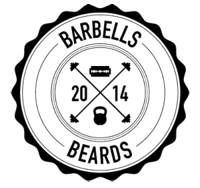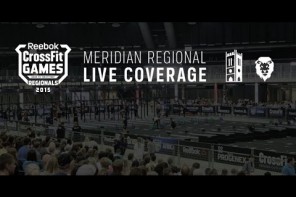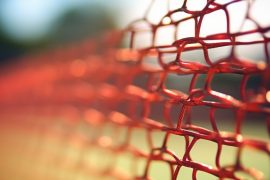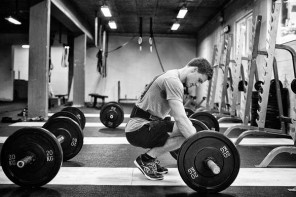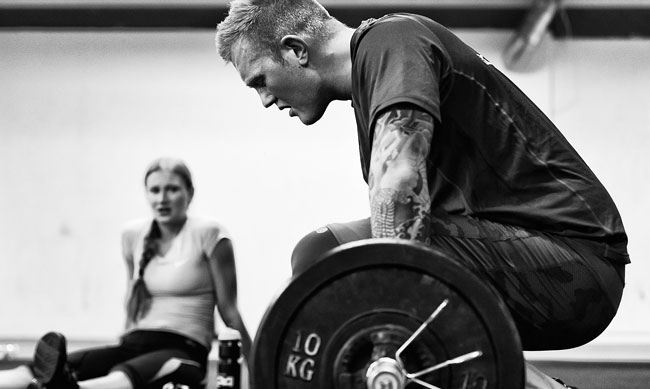
When we workout we put our bodies under alot of stress and deplete our bodies resources and energy in that process. If we want our bodies to respond to our training, grow back stronger and have the capacity to do it all over again we need to ensure that we are giving it what it needs to do just that.
I wrote a post recently about over-training and the signs and symptoms to look out for as a result. In that post I expressed that over-training was actually quite a rare occurrence. If you’re experiencing poor sleep quality, feeling fatigued, have sore joints or experiencing any other signs of over-training and you’re working out for less than 5 hours a week, it’s very likely that you are under-recovered and not over trained.
When you don’t devote enough time or diligence to your workout recovery it’s very likely that you will experience similar symptoms to that of over-training. The difference is that when you are over trained your body has no capacity left for recovery or no way to access what it needs from your body to recover, when you are under-recovered you do have the capacity to recover and the ability to access it. So how do you improve your muscle and workout recovery?
The following 8 post workout recovery tips will ensure you are doing everything you can to ensure you are giving your muscles everything they need to recover and grow.
1. Sleep
Sleep is one of the most important parts of recovery and usually one of the most neglected and easiest to improve.
It is during sleep that the majority of testosterone (growth hormone) is produced and protein is synthesised, allowing you to recover and grow stronger. It is also the time when our thoughts are organised, when new neural pathways are created and our brain cells restore themselves.
Just one bad nights sleep can result in a drop of testosterone production by up to a third, less energy recovery, loss in the ability to concentrate and increased levels of anxiety. In other words not getting enough sleep can have a huge impact on not only your body but also your mind.
What you need:
You need to be getting a minimum of 7 hours good quality sleep a night and that’s 7 hours actually asleep rather than just in bed. Ideally you should aim for somewhere between 7-9 hours sleep a night.
Hack it:
I’ve written a separate post all about how to hack and improve your sleep, but in short make your room as dark as possible, remove any kind of stimuli and start monitoring your sleep using an app such as Sleep Cycle.
2. Hydration
Next to lying asleep in bed more, hydration is one of the easiest areas to improve your recovery and it costs very little.
75% of your muscles tissues are composed of water and on top of that water is a key element in the processes that take place during recovery, such as muscle repair, protein synthesis and the absorption of nutrients. In other words you cannot recover without adequate hydration.
What you need:
You should be drinking 30-40ml of water for every kg of body weight on a daily basis. A 85kg guy should be drinking at least 2.5 litres of water a day, a 60kg girl at least 1.8 litres
Hack it:
Track your water consumption, get a water bottle with measurements on it so you know exactly how much you are consuming.
3. Foam Rolling
When we train hard the soft tissues in and around our muscles become inflamed and restricted, resulting in soreness and tightness. Self-myofascial release (also known as self massage) can aid in returning muscles to normal function, by restoring elasticity and soothing tightness. Think of it like having a knot in your shoulder as soon as we apply pressure the pain and tightness starts to feel instantly better.
Foam rolling is used as a self massage tool to alleviate the tightness and break up knots.
What you need:
Work on using a foam roller for 5-10 minutes post training, target areas of soreness and tightness or muscle groups that you have just been focusing on.
Hack it:
I can’t recommend my trigger point foam roller enough to really help break up the stiffness and get your muscles mobile.
4. Mindfulness/ Meditation
Stress can have catastrophic effects on your training and recovery. When we are are stressed we tend to let good eating habits slide, it has a negative effect on our mental health and it often results in us experiencing a reduction in sleep quality.
Practising some form of meditation or mindfulness leads to a reduction in stress, improves quality of sleep and stimulates the recovery state for our bodies. All of which are extremely important in ensuring that we recovery properly while also improving our overall well-being.
What you need:
Practice some form of meditation for 10-20 minutes a day, either first thing in the morning, after a training session or directly before you go to bed.
Hack it:
Get some zen in your life, I use an app called headspace that has done wonders for my stress levels, Try it!
5. Active Recovery
Rest days should be rest days, but that doesn’t mean you shouldn’t be doing anything. I know I feel infinitely worse following a day of lazing around, like I’ve given my body the opportunity to contract and stiffen.
Undergoing a light form of aerobic activity on your rest days will promote blood flow to your muscles, helping to enrich your muscles with nutrients for recovery and flush away any waste material.
What you need:
You should be performing active recovery for 20-40 minutes on rest days. Active rest can be any form of low intensity cardio activity such as jogging, walking, biking, swimming.
6. Post Workout Supplements
Beyond getting your nutrition right, supplements can help aid in post workout muscle recovery, fuelling your body with the vitamins and minerals you’re likely not getting enough of in your diet.
What you need:
Consider taking any of the following supplements:
Magnesium – To improve sleep quality and accelerate recovery. Try PurePharma M3
Omega 3 Fish Oil – To reduce muscle and joint inflammation. Try PurePharma O3
Protein Powder – To support your protein diet goals. My Personal favourite at the moment BSN Syntha 6
7. Post Workout Nutrition
Claiming to be able to fix your nutrition for recovery in two paragraphs here would be madness and I’ve got a whole section with lots of nutrition tips for you to have a look at, but I do have some basic guidance for you to get started
What you need:
Eat at least 2.2g of protein for every kg of body weight or 1g of protein for every lb
Cut out processed food in favour of unprocessed meats, fish, vegetables and fruit
Support intense training sessions with adequate amounts of carbs
Eat enough calories to support your goals
Eating good fats (avocado, nuts, coconut oil, olive oil)
Hack it:
Get yourself an activity tracker to more accurately workout how many calories you are burning on training and rest days. Find some here!
8. Cool Down
Do you finish your workout session then just stop? Undertaking a short cool down session post training can help kick start muscle recovery.
What you need:
Work on ensuring you carry out a cool down session lasting around 5-10 minutes post workout. Try a bit of relaxed work on the Airdyne or bike, or work on your mobility at the same time with some crawling routines. Remember this isn’t additional strength or cardio work!
